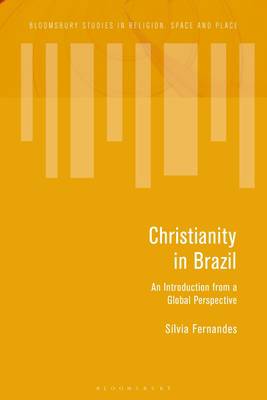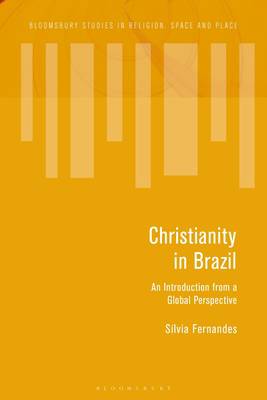
- Retrait gratuit dans votre magasin Club
- 7.000.000 titres dans notre catalogue
- Payer en toute sécurité
- Toujours un magasin près de chez vous
- Retrait gratuit dans votre magasin Club
- 7.000.0000 titres dans notre catalogue
- Payer en toute sécurité
- Toujours un magasin près de chez vous
67,95 €
+ 135 points
Description
This book offers a novel approach to considering Brazilian Christianity's interplay with global processes from its inception to the present day. It adopts a multi-scalar approach to Brazilian Christianity, linking local grassroots practices and beliefs with processes at the various spatio-temporal levels. These include regional (rural-urban diversification), national (secularization, the radical pluralization of the Christian field, and intensified detraditionalization and retraditionalization) and transnational.
Sílvia Fernandes also identifies longue durée dynamics that connect colonial Christianity with current events, including the rise, crisis, and resurgence of Progressive Catholicism, and the election of right-wing populist Jair Bolsonaro with support from a sizable number of Evangelical Protestants and Charismatic Catholics, as well as "traditionalist" Catholics. This book demonstrates that as Christianity enters its third millennium, it is increasingly shaped by churches and movements based in the "Global South" that have transnational and diasporic reach through the circulation of migrants, religious entrepreneurs, pilgrims, and tourists, as well as by the expert use of electronic media.Spécifications
Parties prenantes
- Auteur(s) :
- Editeur:
Contenu
- Nombre de pages :
- 256
- Langue:
- Anglais
- Collection :
Caractéristiques
- EAN:
- 9781350204997
- Date de parution :
- 23-03-23
- Format:
- Livre broché
- Format numérique:
- Trade paperback (VS)
- Dimensions :
- 156 mm x 234 mm
- Poids :
- 358 g

Les avis
Nous publions uniquement les avis qui respectent les conditions requises. Consultez nos conditions pour les avis.






